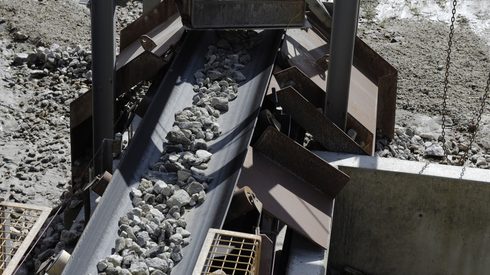India
Fastmarkets calculated the steel scrap, shredded, index, import, cfr Nhava Sheva, India at $428.83 per tonne on Friday, up from $401.81 per tonne one week earlier.
Only one deal was heard this week for shredded scrap of UK origin at $430 per tonne, up from deals heard at $390-405 per tonne last week.
The continued shortage of shipping containers and high freight rates has made trading difficult for many on the market.
A demand boom for consumer goods, an imbalance in trade flows to and from China, and competition between cargo holders have kickstarted a rapid increase in shipping costs in the fourth quarter.
One market participant said that sourcing containers “continued to be a headache” while another said the high container prices meant there was no margin in the sales.
“The market is extremely difficult. People don’t have material, and shipments not coming on time. There are some delays of material from the UK. Turkey is buying a lot of material, and India and Pakistan can’t afford to give a similar increase. The price gap between India and Turkey is reducing, on supply and demand,” a mill source said.
“Containers and freight rates a big role to play. Demand for finished material is very high. Due to reduced collections there is a reducing availability of material,” he added.
“We can’t understand the market. It’s a tricky position. We are not getting container booking, and freight rates are up another $150 per tonne. Everyone is calling for material and no one will be able to ship,” a trader said.
A sharp rise on the international market has also pushed up prices on the key global scrap markets.
Fastmarkets calculated the index for steel scrap, HMS 1&2 (80:20 mix), North Europe origin, cfr Turkey at $442.44 per tonne on December 17, up from $392.66 per tonne on December 11 and almost $100 per tonne higher than $348.61 per tonne on December 1.
The weekly price assessment for steel scrap, HMS 1&2 (80:20 mix), import, cfr Nhava Sheva, India was $390-410 per tonne on Friday, up from $360-380 per tonne the previous week.
There were minimal HMS offers on the market this week, with a focus on shredded material instead.
UK-origin HMS offers made up the bottom end of the range, with Middle East-origin and Australian material making up the top end.
“Nothing is working on the market, everything is an issue. There can’t be a one-way traffic upward in price. Domestic availability of scrap in India is also lower so Indian buyers have no choice but to buy imports. Prices will increase more,” a seller said.
Pakistan
On the Pakistan market, a similar rise in shredded prices was reported this week, largely linked to the rising international market and an increase in domestic rebar prices.
Fastmarkets calculated the steel scrap shredded, index, import, cfr Port Qasim, Pakistan at $433.17 per tonne on Friday, up from $403.39 per tonne on December 11.
This week, deals were heard for shredded material at $430-433 and $440 per tonne cfr, up from a deal level of $400-410 per tonne the week previous.
“The logistics situation is bad everywhere. We are seeing big delays in transit from different ports for Port Qasim. There is a lot of confusion related to prices… and yards are holding back for now. Prices in Pakistan will have to go up sharply to compete with Turkish prices,” a trader said.




